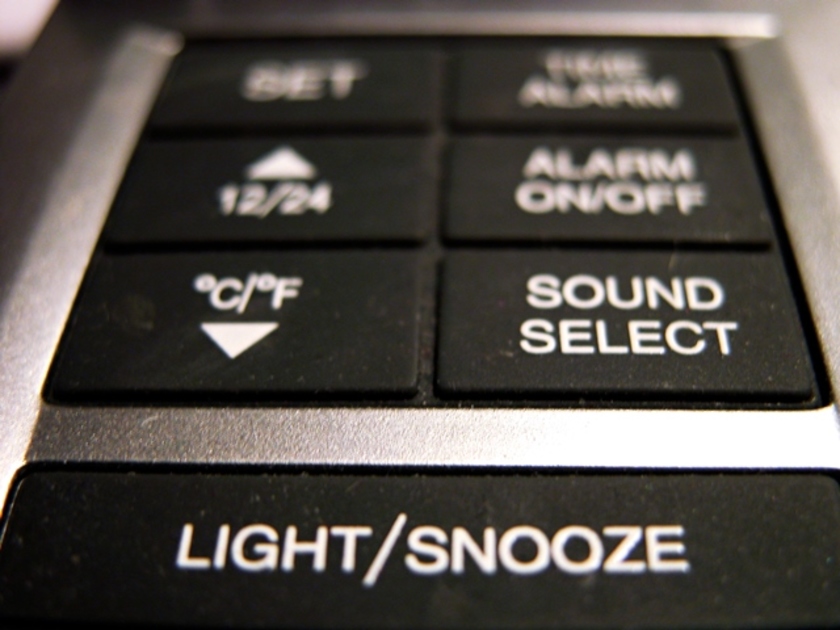
Your alarm rings, startling you and arousing you from deep slumber. You hit the snooze button for a few more minutes of coveted rest. It rings again and you dutifully turn it off. You notice intellectually that you have to get up, but you stay in bed until the last second. Perhaps you lie in a semiconscious state for “just a few minutes.” Maybe you choose to reset your alarm for a later time and stay in bed for a while. You might rationalize with yourself: “I really need this sleep. I will be able to function much better during the day if I rest some more.” Perhaps you put a religious spin on it, “I will have more kavanah (focus) during davening (prayer) if I am more rested.”
When you wake up and mosey about, you might chide yourself for being lackadaisical. Alternatively, that thought crosses your mind later in the day. “I am so lazy sometimes,” you tell yourself. You might make a note to yourself to “work on your laziness,” to speak to your therapist about how to be more goal oriented and productive, or to review the beginning of Mesilas Yesharim (a religioethical work) that discusses zerizus (alacrity).
It might be significant to consider that many behaviors that are identified with laziness might have little to do with that abstract personality trait. The thoughts, actions, and feelings that you interpret as coming from laziness might result from inhibitions at facing something or someone in your life. Consider that some of the reason it is hard for you to get up in the morning might be that you don't like your job, you don’t enjoy studying, or that you feel uncomfortable at the place you pray. Maybe last night’s difficult conversation with your family member disappointed you and you would prefer not to face him, or the world. Maybe you aren’t making enough money or you don’t like the community you live in. Unfortunately, there are almost endless negative experiences that can float around in your head, and they can make its weight on your pillow very formidable. You gain sleep, and you also gain avoidance of that feeling or situation.
Avoidance might be a tune you dance to throughout your week. Do you procrastinate doing your taxes or paying your bills? Part of you might be reluctant to sacrifice other activities to carve out a time investment to get your books in order. Yet, maybe you also resent Uncle Sam for charging you to live in the United States. “Isn’t it supposed to be a free country?” you ask yourself. “Why am I paying, or paying so much?” you think. Then you mutter, “My car lease payment? I wish I had leased a different car. I don’t like this one anyway. Why am I still paying for it? My neighbor even got a better deal on the same model!”
Part of the complexity of the human mind is that there are many thoughts and feelings it can have about a specific situation. Some are more obvious, and others less so. They can all affect functioning and behavior. This can be evident in small areas, such as what time you wake up or how quickly you arise. Vilifying yourself for slacking off might create short term behavioral gains. But a personality flaw is not the root of the problem, and focusing on improving that trait will not usually meet with long term success.
There is a certain draw to avoiding cognitions and focus on life’s unpleasantries. It is immediately comfortable, more secure, and less messy. Yet, not giving them their due attention might be affecting your behavior or functioning. On the other hand, when you become more in touch with what your mind is resisting, negative or unpleasant thoughts can have less gravity. When you encounter behaviors that you see as procrastination or slacking off, think about what you might be avoiding. If you consider some possibilities, you might notice that your avoidance wanes.
In the 1950’s, the General Electric Company created the world’s first alarm clock with a snooze button, the Telechron 7H241. It was billed as “The World’s Most Humane Alarm Clock.” (You can see the original print ad and hear the original radio commercial for it here.) The snooze button might have made the clock more humane, but it might have shielded its owners from being more human.
Find this post and more like it at my blog, ShmuelMaybruch.com
 Previous
Previous

